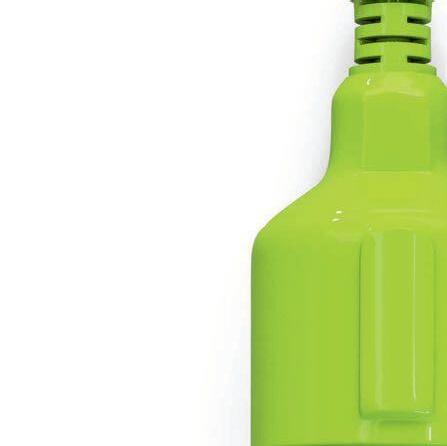
3 minute read
Stress and oral health



Don’t sink your teeth into stressing out.
Story: Anastasia Turchetta
Do you say “yes” to the stress? Of course, you do! But did you know that stress is affecting your oral health?



Whether it’s emotional, physical, or financial, stress can stop your momentum as you drive on the highway to good health. Whether it’s short or long term, major life changes or daily conflicts, one fact is certain: the impact of unmanaged stress on your health is nothing to smile about.

Major life changes come in all shapes and sizes, like the loss of a relationship, job, pet, or loved one. It can be a sudden illness or medical emergency, surgery and recovery, or the responsibility of being a caregiver to an aging parent. Moving to a new area means a whole new range of changes, like finding new doctors, health insurance, endless calls or appointments, setting up utilities, and, worst of all, dealing with the DMV.
Daily conflicts, like running late for work, forgetting where your keys are, getting stuck in traffic, almost getting in an accident while driving, arguing with your partner, struggling to pay bills on time, and dealing with drama at work and at home all are extremely stressful situations.
How stress impacts our bodies does not have a fairytale ending. Instead of winding up with Prince Charming, we’re left with high blood pressure, anxiety, depression, a suppressed immune system, headaches, and restlessness.

And unmanaged stress will leave your smile hurting in a number of ways, too. More specifically, we’re left grinding our teeth (bruxism), with sore, bleeding gums and bad breath.
GRINDING TEETH: When we’re stressed, we most likely clench our teeth together. This is common to do in our sleep. It’s called bruxism and the impact is quite a load. Normal pressure from chewing is approximately 20 to 40 pounds. However, when we clench our teeth, it’s more like 250 pounds of pressure. This can contribute to problems with TMJ (jaw joints), muscle soreness, a stiff neck, and headaches. So, what’s the solution? That depends on the wear on your teeth.
Looking in the mirror, gently bite together and slowly move your jaw from one side to the other. If you notice that the edges of your canine teeth are worn and fit in that unnatural jaw position, there’s a good chance you’re grinding your teeth. There are treatment options available to help correct this stressful situation, including being fitted for a custom mouth guard or splints, targeted massage to release the muscle’s tension, and cool laser therapy.


BLEEDING GUMS: It isn’t normal for gums to bleed. Period. Gingivitis and periodontal disease are the two most common reasons your gums will be both sore and bleeding. They’re not the only reasons. Stress is another factor. Your body drives the stress hormone cortisol to suppress your immune system, which allows bacteria to invade your gums. The symptoms will feel like whiplash to your gums.

What’s the solution to stop stress from wrecking your gums? Amp up your oral hygiene regimen. Use an electric toothbrush and an accompanying app to confirm you’re brushing all the surfaces of your teeth for two minutes at least twice a day. It’s also recommended to clean in between your teeth with interdental brushes, floss picks, or a water pick. You also should use toothpastes that focus on reducing gingivitis, not desensitizing or remineralizing. Any way you can remove bacteria is stress management for your gums.
BAD BREATH: Have you ever noticed how dry your mouth gets during those daily conflicts mentioned above? That’s because stress reduces saliva. Add on lifestyle risk factors like a poor diet, coffee, alcohol, smoking, or vaping, and you can really take someone’s breath away—just not in the way you hope. Even medication for stress can be a culprit for bad breath.
How can you extinguish stress-related bad breath before it impairs your self-esteem, intimacy, and potential income? Try chewing gum or mints with Xylitol during the day. You also should discuss which mouth rinse ingredients best fit the current state of your oral health with your dental hygienist.
Each day, we consciously and subconsciously say yes to the stress. Our bodies are our health advocates. They become crystal clear in communicating to us when we need to refuel. Empowerment comes when we listen to our bodies and act before we drive on fumes.
It’s important that we harness our stress management.
ABOUT THE WRITER → Anastasia Turchetta is a health empowerment conversationalist with 30 years in the health-care profession. She is the host of “Coffee Chat with Anastasia” online. Learn more about her at anastasiaturchetta.com, Facebook, and Twitter.










curiosity. It takes practice, but soon Mindfulness expert Julie











